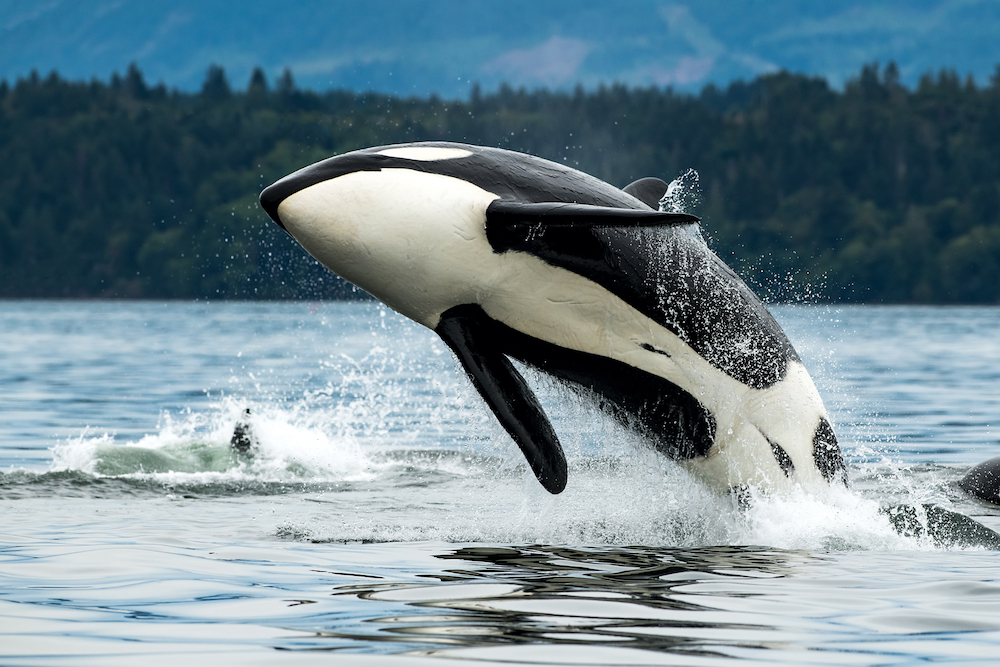
In the modern age of social media, users are overwhelmed with a torrent of unrealistic content which brainwashes them into believing that they are not living their ‘best life’.
From unhealthy beauty standards, to online parent shaming.
‘Instagram vs reality’ has become a popular phrase and, whilst more and more social media ‘influencers’ are trying to show the difference between carefully edited content and real-life snapshots, they are fighting an uphill battle.
According to a report by American software company Domo, in every 1 minute:
One significant example of unrealistic standards set by social media, is travel.
I myself am particularly interested in orca whales. I have shown an interest in whale watching accounts, and tourist postings for whale watching hotspots such as Monterey Bay.
Now, scrolling through the ‘explore’ function on my Instagram account, my algorithm is flooded with a sea of tourist snapshots – no pun intended.
In trying to appear to give us what we want and to make us stay on the platform, Instagram ironically creates within us an unfillable void by making us believe that other people are on a never-ending holiday whilst we are at home doing the dishes on repeat.
The trouble is that, behind these beautiful shots of breaching orcas, dolphins and other marine life, the reality is that there is likely a crowd of people holding a wall of mobile phones, all capturing a similar shot.
The romanticism of tourism has meant that, like many things, it has driven us to overconsumption and constant streams of visitors are destroying the picturesque locations we are all so desperate to experience.
The environmental impact of obsessive tourism is heavy. Natural wildlife – including endangered species in some cases – is disturbed and often driven away. The landscape is destroyed as hundreds of feet trample through it. The native cultures which travellers are so desperate to experience are diluted.
Not to mention, of course, the immense carbon footprint produced by tourism.
The most ironic point of all, is that in the obsessive mass sharing of ‘beauty spot’ travel pictures, leading to chaotic over-tourism, all of the beauty and romance from the location is leeched away. That enchanting ‘hidden’ spot on the mountainside is not so enchanting when seen through a crowd of people.
There is much to be said about the development of sustainable holiday-making and an interesting emerging trend is ‘slow travel’.
Slow travel involves travelling over land – for example by train, bike or walking – and staying in one place for longer as opposed to travelling great distances for short breaks in trending holiday spots.
This method of travel is all about taking the time to appreciate the environment around you, rather than finding the spot you saw on Instagram so that you can take an equally beautiful picture to upload to social media and immediately move on.
Although it goes against the holiday habits engrained into us, slow travel is actually more likely to bring you the relaxation you are searching for. Think about it, which is more likely to calm your soul:
Slowly hiking through nature, without a mobile phone in sight and the pleasure of good company.
Or an eight-hour flight overseas, airport security, a jam-packed itinerary meticulously coordinated (so that you can see as much as possible, as quickly as possible) with the company of a tired and cranky travel companion?
The phrase ‘less is more’ comes to mind.
We serve clients who want support from public relations professionals who can assist them with their communication programmes. Our work includes PR strategy, media liaison, writing, marketing, brochure and web design.
Our clients want support from people who will be proactive in their approach and who have their clients’ interests at the heart of what they do.
Based in Surrey, we serve clients from around globe looking for a positive impact to their communication activity.